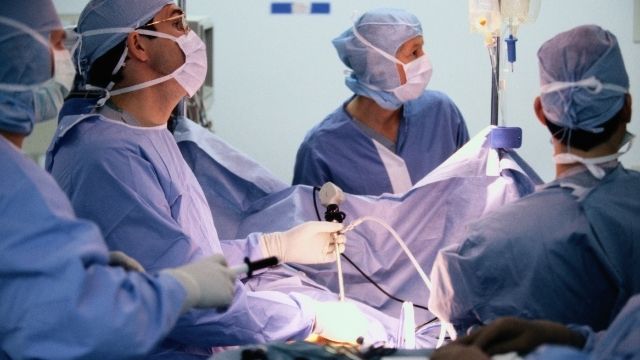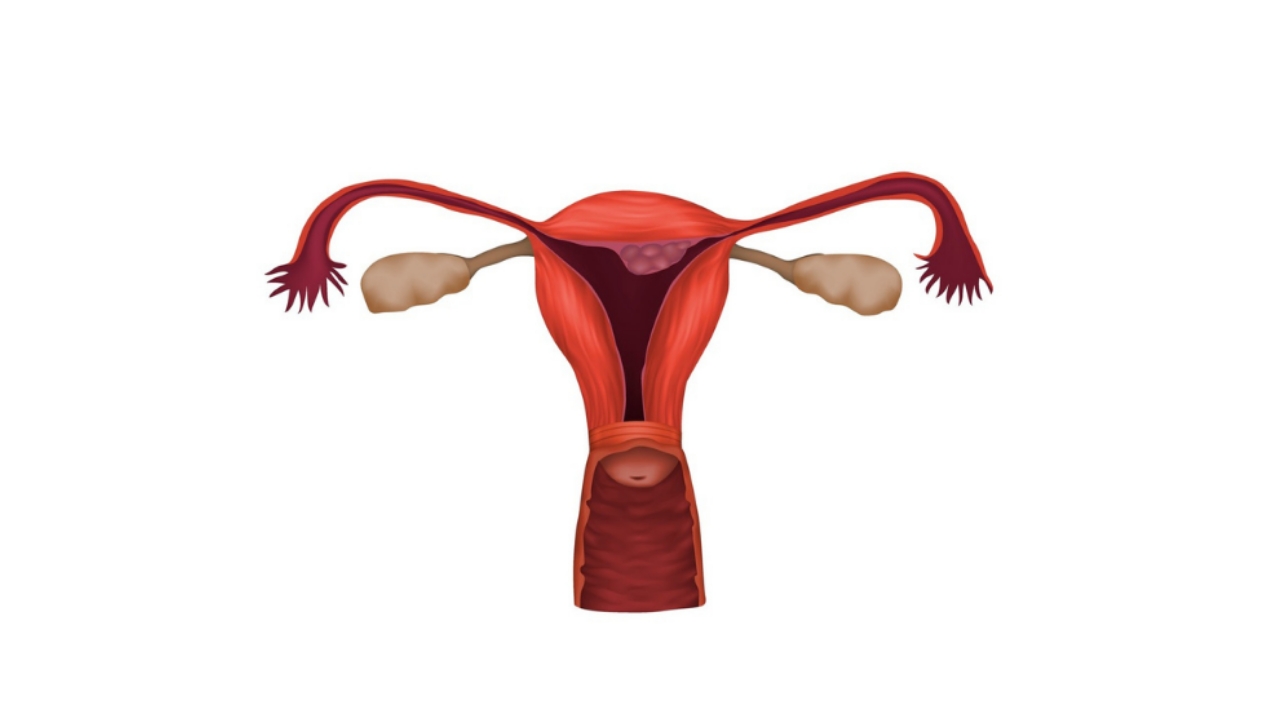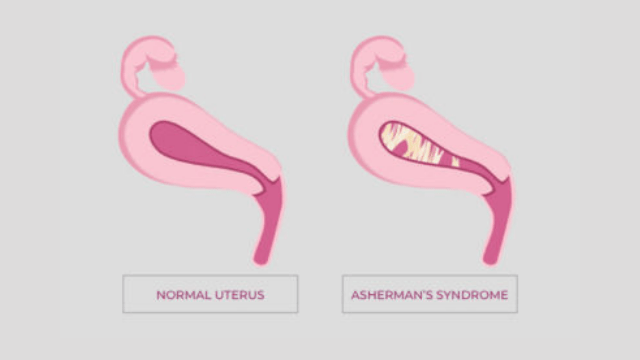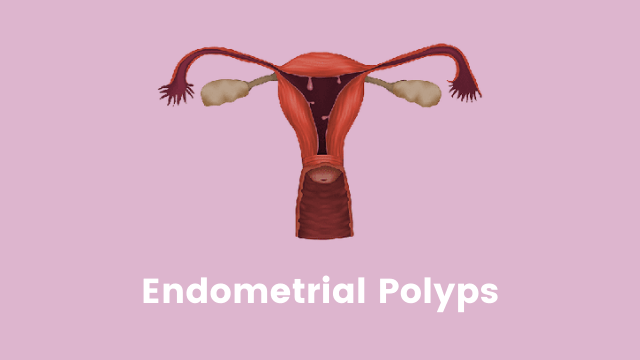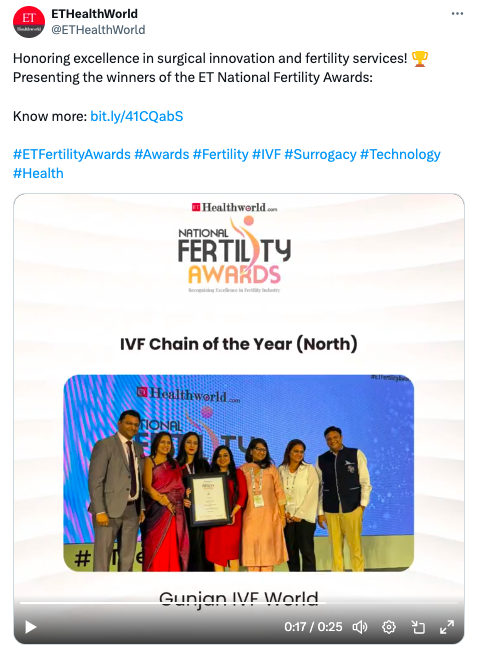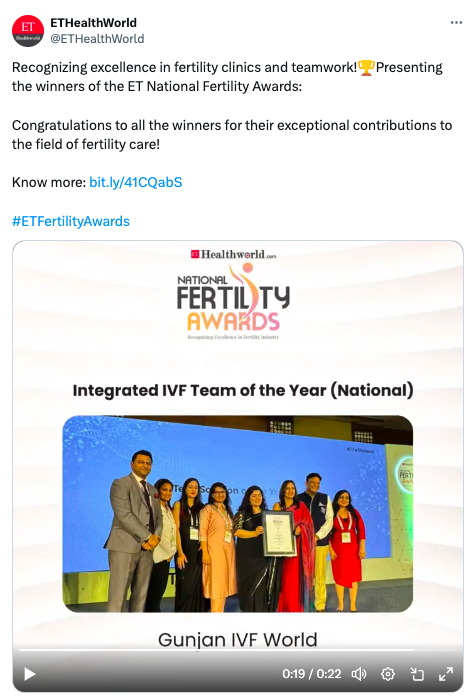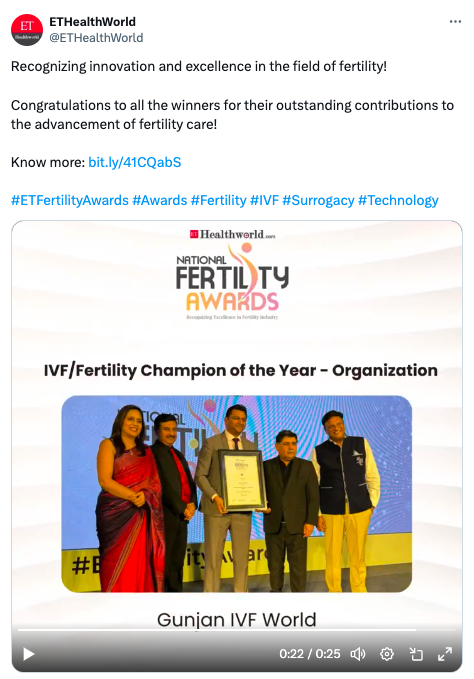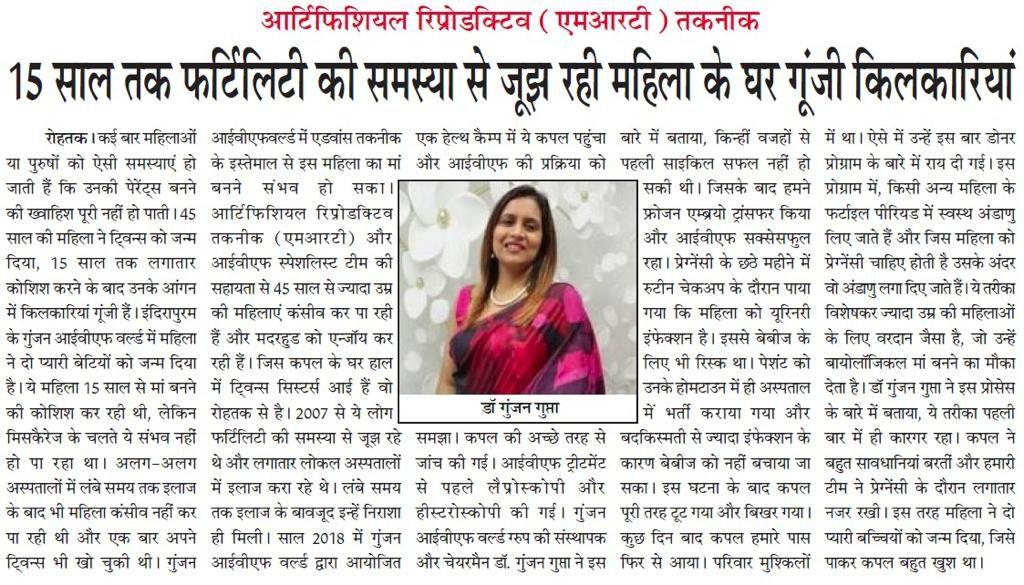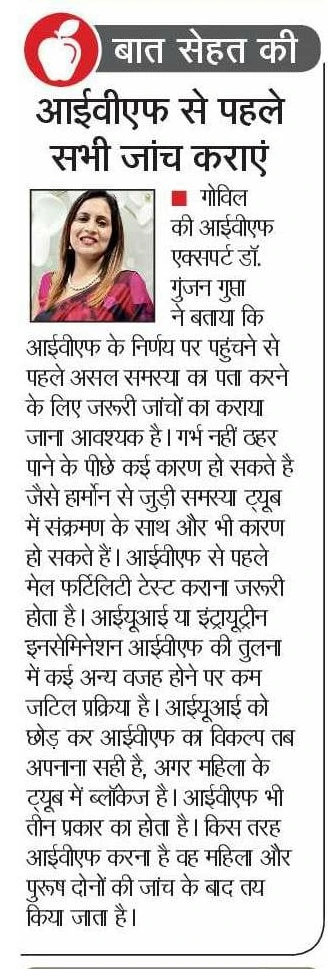Ovarian Cyst Removal
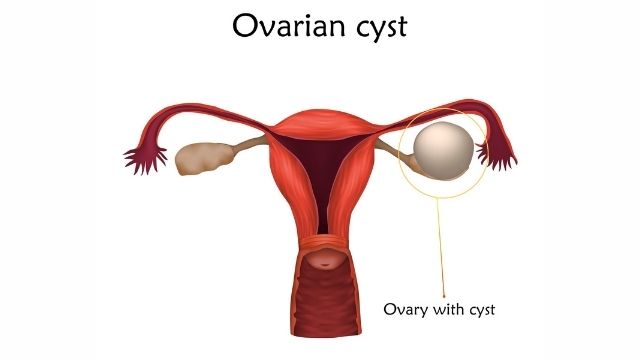
What is an ovarian cyst?
Ovarian cysts are like fluid-filled sacs that form in the ovary. The ones who commonly suffer from ovarian cysts are women of all age groups, from puberty to the reproductive age group to postmenopausal females. The majority of ovarian cysts are not cancerous in contrast to the general scare and also do not require surgical removal. Cysts can vary in size from less than one centimetre (one-half inch) to greater than 10 centimetres (4 inches).
Some women with ovarian cysts may have pain or pelvic pressure, while others have no symptoms. The condition of the Irregular period cycle is not usually related to an ovarian cyst. However, if the cysts grow big, they might interfere with your health. Not only it causes pain, but it also leads to cancer, even though it is rare. With age, the chances of developing it into ovarian cancer increases. An unhealthy lifestyle and hormonal imbalance cause ovarian cancer.
Everything You Need to Know About Ovarian Cyst Removal
Causes | Signs and Symptoms | Diagnosis and Treatment | Pregnancy With | Ovarian cyst and ovarian cancer
Causes of Ovarian Cyst
- Follicular cyst – Functional ovarian cysts are cysts that develop or form when a follicle or a sac grows but does not rupture in order to release the egg. Every month, with your menstrual cycle, you might unknowingly develop ovarian cysts. It goes away on its own with time.
- Dermoid cysts – Dermoid cysts are more like tumours that develop in the ovaries. These tumours primarily consist of various tissues like hair, teeth, thyroid, bone, sebum etc. Dermoid cysts typically originate from the totipotential germ cells, which are present in the egg sacs or follicles. Totipotential, the cell can often cause mature tissue formations. These mostly look similar to the structures like hair, bone, sebaceous materials, etc. Dermoid cysts can occur during any age; however, women of childbearing age are more susceptible. They are usually not more than 2.5 inches in diameter and can be removed laparoscopically.
- Polycystic ovary syndrome (PCOS) – Women with PCOS may have many small cysts in their ovaries. There is no need to remove or treat this cyst with surgery or medication, but PCOS patient may need treatment for other PCOS symptoms or associated problems, such as irregular menstrual periods.
- Endometriosis – Women with endometriosis can develop a blood-filled ovarian cyst called an Endometriosis, or “chocolate cyst.”
- Corpus luteal Cyst: – A Corpus luteal cyst normally develops in early pregnancy, to support the pregnancy until the placenta develops. It develops at the site of ovulation.
- Severe pelvic infections – Severe pelvic infections like tuberculosis may spread to involve the ovaries and fallopian tubes. As a result, these pus-filled cysts develop close to the ovaries and fallopian tubes and are termed adnexal masses.
- Cancer – Cancer is an unknown rare cause of ovarian cysts in premenopausal women. Around less than 1 percent of new or abnormal growths in the ovary is said to be ovarian cancer. Ovarian cysts if found in postmenopausal females are more likely to be cancerous.
Sub Treatments For Fertility Enhancing Surgeries
We are one of the Best IVF Clinic in Delhi NCR!
51.8K
Subscribers
4.6 (383 reviews)
4.5 (409 reviews)
3.5 (254 reviews)

5 Out Of 5
Signs and symptoms of ovarian cyst
Usually, the symptoms of ovarian cyst are asymptomatic but in some cases, one can experience the following symptoms:
- Experiencing dull backache or lower abdominal fullness and pain that may be dull or sharp, constant or fluctuating. The ovarian cyst doesn’t cause any Crampy lower abdominal pain.
- One may also feel sharp-sudden pain when the cyst ruptures in the ovary.
- Women that have torsion or twisting of an ovary may experience pain along with nausea and vomiting. They might also feel weak, fainting, and dizzy.
- Ovarian cysts don’t cause abnormal periods or vaginal bleeding.
Diagnosis and treatment for ovarian cyst
Pelvic examination is one of the simplest methods of diagnosis for ovarian cysts. Healthcare providers rule out pregnancy as the cause of ovarian cysts. Later on, he might use specific tests for diagnosing. Here are some of the diagnosis methods for ovarian cyst.
- If you have a corpus luteum cyst, the positive pregnancy test will detect it.
- Pelvic ultrasound, especially transvaginal one can easily and accurately visualize ovarian cysts and it helps to analyze the presence of a cyst, its nature and location.
- There is another way, and that is the CA 125 blood test. A woman having ovarian cancer has an elevated blood level of cancer antigen 125. Doctors generally suggest this test when your cyst’s nature is solid, and you have a high risk of ovarian cancer. But Ca 125 can also be raised in other conditions as endometriosis, fibroids and pelvic inflammatory disease.
- Laparoscopy: Laparoscopy can be used to diagnose and treat ovarian cysts. A laparoscope is a slim-lighted instrument. Doctors insert it into the abdomen to see the ovary’s condition, and with this, he can also remove the cyst. This process is called laparoscopy. Although cysts disappear within a few months, proper treatment is necessary to avoid further complications. The type, size and symptoms of the cyst decide the treatment.
- If the person has a cyst in her ovary but has no symptoms and its size is small, the doctors recommend that they wait and re-examine if the cyst has gone.
- You can take hormonal contraceptives if your doctor recommends you so to keep the cyst from recurring.
- Some cysts increase in size continuously and cause pain. Generally, doctors suggest removing this. Majorly, doctors can remove the ovarian cysts, but in other cases, they need to remove the ovary. Remember that even If one of the ovaries is removed, the other removing ovary will still be able to release certain hormones and eggs as usual. Your fertility wouldn’t be affected by removing one ovary, although you may find it slightly difficult to get pregnant. Doctors refer patients to gynaecologists if their ovarian cyst is cancerous.
Pregnancy with an ovarian cyst
During early pregnancy, ovarian cysts are prevalent. Irregular menstruation is common with ovarian cysts. Most of the time, these cysts are harmless, but it can cause problems if it grows during pregnancy. To avoid the risk, you should consult with gynaecologists.
Ovarian cyst and ovarian cancer
Ovarian cancer arises from ovarian cells. The place of the tumours is the epithelium or lining of the ovary. Unlike these, there is also ovarian tumours with low malignant potential. It does not spread like typical cancer. Ovarian cancers may require a combination of surgery and chemotherapy. In some cases, doctors suggest radiation for curing it. The difference between the symptoms of ovarian cysts and cancer is impossible, but the diagnosis processes are the same.
Ovarian cysts are not generally non-cancerous although there’s no way to prevent ovarian cysts, regular pelvic exams help ensure that changes in your ovaries are diagnosed as early as possible. Be prepared for changes in your monthly period cycle, including unusual period symptoms, especially ones that persist for more than a few cycles. Talk to your doctor about these changes.
Patient Testimonials
It’s always the word of mouth that’s the best advice
Published On: 3 Dec 2018
London to Gunjan IVF: Mrs. Pragya's journey of parenthood |Treated for pregnancy care | Gunjan IVF
Published On: 7 Oct 2018
We are pregnant!! | Pregnancy after Fibroid Removal Treatment (Myomectomy)| Gunjan IVF World

Erica Benn
It was such a nice experience with Dr. Gunjan and how she tackle our case. I must recommend this clinic as one of the best IVF clinic in Delhi-NCR. Thanks to Dr. Gunjan to give me my motherhood.

Nitesh Kumar Thakur
Gunjan IVF World in Indirapuram, Ghaziabad is the best hospital for surrogacy and ivf services in Delhi-NCR. Dr. Gunjan Gupta is founder and director of Gunjan IVF World. Gunjan IVF is the best ivf center in Indirapuram , Ghaziabad. Treatments at affordable prices.

Akansh Garg
Dr gunjan gupta is one of best gyne in delhi ncr especially in ghaziabad she explains each n everything very clearly to avoid any confusion. staff is very supportive n helpful.

Manisha Pathak
Went for treatment at various places in Delhi since 2012. Then came to know about Gunjan IVF. Started treatment in October 2020. The treatment is going on and we are quite hopeful. Gunjan ma'am is a very good doctor who treated me well and the staff are also very good and helpful.

Erica Benn
It was such a nice experience with Dr. Gunjan and how she tackle our case. I must recommend this clinic as one of the best IVF clinic in Delhi-NCR. Thanks to Dr. Gunjan to give me my motherhood.

Nitesh Kumar Thakur
Gunjan IVF World in Indirapuram, Ghaziabad is the best hospital for surrogacy and ivf services in Delhi-NCR. Dr. Gunjan Gupta is founder and director of Gunjan IVF World. Gunjan IVF is the best ivf center in Indirapuram , Ghaziabad. Treatments at affordable prices.

Akansh Garg
Dr gunjan gupta is one of best gyne in delhi ncr especially in ghaziabad she explains each n everything very clearly to avoid any confusion. staff is very supportive n helpful.

Manisha Pathak
Went for treatment at various places in Delhi since 2012. Then came to know about Gunjan IVF. Started treatment in October 2020. The treatment is going on and we are quite hopeful. Gunjan ma'am is a very good doctor who treated me well and the staff are also very good and helpful.
Patient Guide
Along with treating our patients, we also guide them with the help of our educational blogs and videos.
Educational Blogs
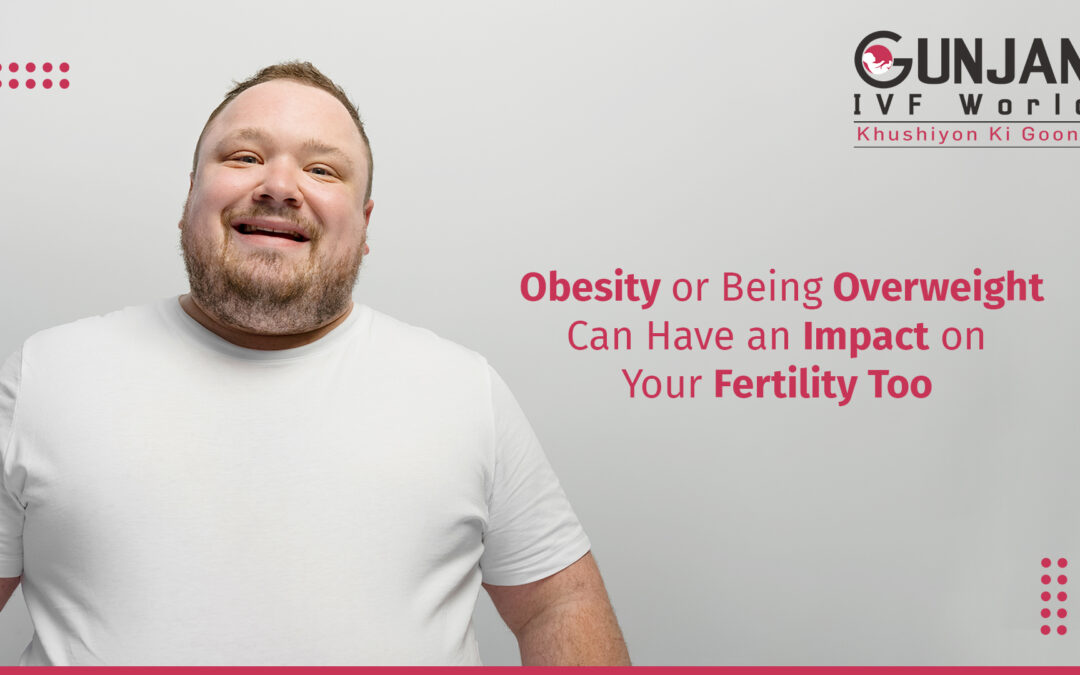
Can obesity or being overweight have an impact on a man’s fertility?
Comprehensive Fertility Treatments | Gynaecology Procedures | Menopause Management | Pregnancy...

Does testicular temperature have an impact on male fertility
IVF specialists of the best IVF centre in Ghaziabad – Gunjan IVF World share an informative blog...

Is male menopause a myth or reality ?
IVF specialists of the best IVF centre in Ghaziabad – Gunjan IVF World debunk the myths about male...
Educational Videos
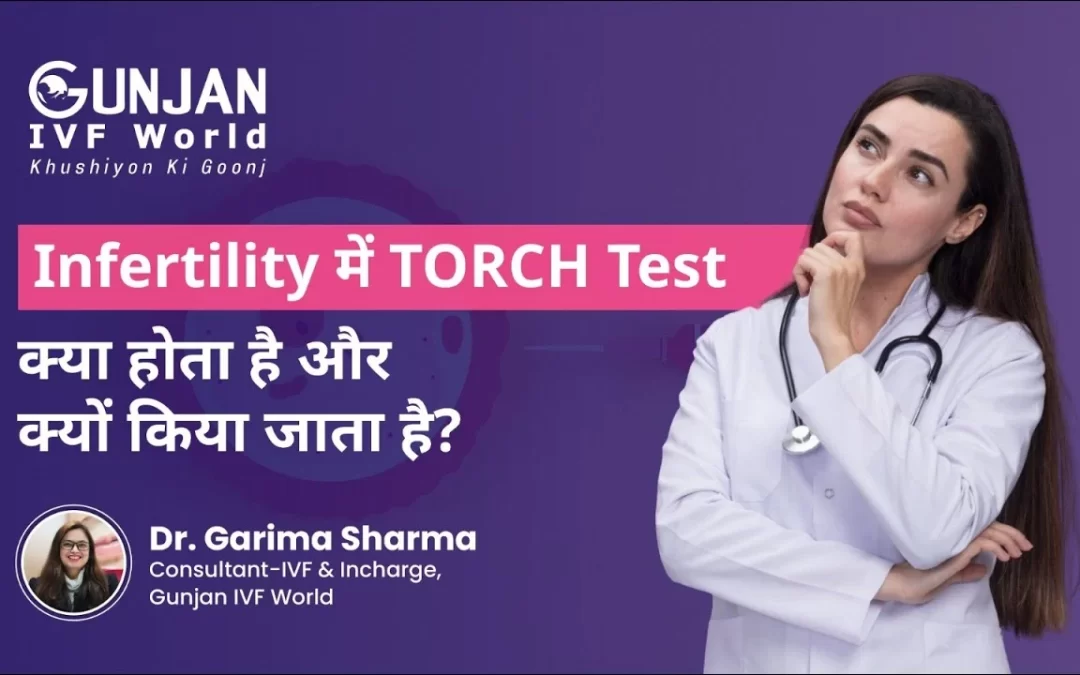
What is TORCH test in infertility and why is it done?
There are numerous tests that are available to infertile couples that are recommended by some doctors, which might help them determine the cause of their infertility. One such test is the TORCH test.
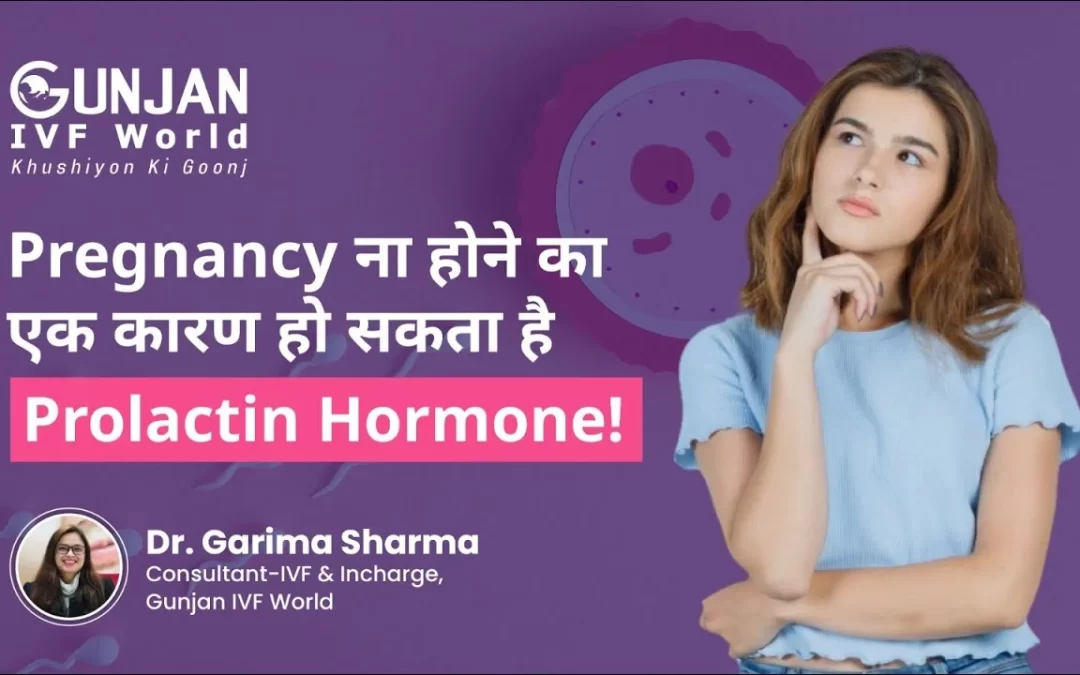
What is Prolactin Hormone?
Prolactin is a hormone produced by the pituitary gland present at the brain’s base. It is best known for its role in lactation, or milk production, in breastfeeding women.However, Prolactin also plays other important roles in both men and women, such as regulating the immune system, stimulating the growth of new blood vessels, and influencing behaviour and reproductive function. In this blog, we will explore what Prolactin is, how it works, and what happens when there are imbalances in prolactin levels.
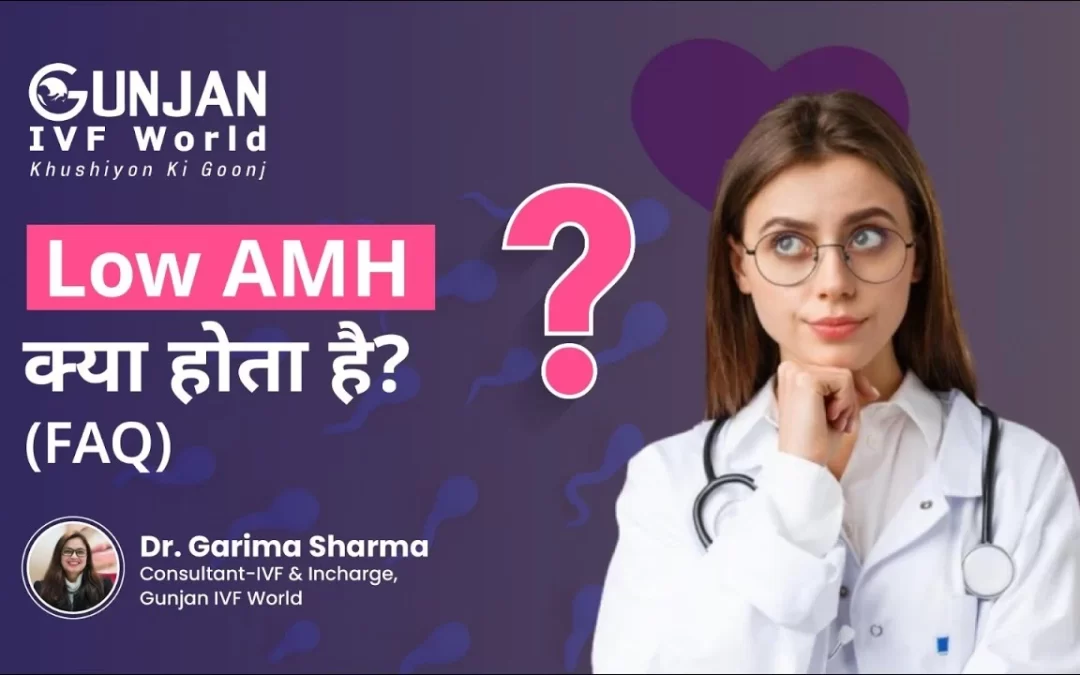
Frequently Asked Questions about Low AMH
Primordial and Preantral follicles produce AMH. So the AMH level indicates the number of eggs or egg reserves you have in your ovary. Putting simply, if your AMH level is low, then the number of eggs in your ovary is less.
Frequently Asked Questions
Can obesity or being overweight have an impact on a man’s fertility?
Comprehensive Fertility Treatments | Gynaecology Procedures | Menopause Management | Pregnancy Care | Maternity & Birthing Call +91-9990044555A short article by IVF experts...
Does testicular temperature have an impact on male fertility
IVF specialists of the best IVF centre in Ghaziabad – Gunjan IVF World share an informative blog on one of the most ignored factors of male infertility. It is an alarming fact to...
Is male menopause a myth or reality ?
IVF specialists of the best IVF centre in Ghaziabad – Gunjan IVF World debunk the myths about male menopause through this informative blog Menopause as a term is extremely common...


